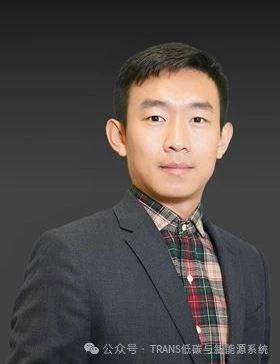Lecture Information
【Speakers】
- Dr. Wang An
- Dr. Zeyu Zhang
【Moderator】
- Professor Shiqi Ou
【Lecture Topics】
Session 1:
- General Environmental Perception and Its Application in Dense Urban Areas
Session 2:
- Road Traffic Emission Estimation in Mountainous Urban Areas Based on Multi-source Data
【Date and Venue】
- Date: January 13, 2025, 10:00-12:00
- Venue: B1C-101
Expert Introduction

Dr. Wang An is currently an Assistant Professor in the Department of Civil and Environmental Engineering at The Hong Kong Polytechnic University. Prior to joining PolyU, Dr. Wang obtained his doctoral degree from the University of Toronto in 2020 and worked for two years at the Senseable City Lab at the Massachusetts Institute of Technology. His interdisciplinary research focuses on the interplay between sustainable transportation systems, urban environmental sensing, and data-driven modeling of human exposures. His recent work explores environmental and energy justice issues in global metropolitan areas. Dr. Wang’s research findings have been published in high-impact journals such as Atmospheric Environment, Environmental Science and Technology and Applied Energy.

Dr. Zeyu Zhang is currently engaged in postdoctoral research in the Department of Civil and Environmental Engineering at The Hong Kong Polytechnic University. He obtained his doctoral degree from the School of Transportation at Beijing Jiaotong University in 2024. His primary research focus lies in modeling energy consumption and emissions throughout the lifecycle of urban transportation using principles of uncertainty. His research outcomes have been published in journals such as Transportation Research Part D: Transport and Environment and Journal of Cleaner Production. Additionally, he has presented multiple papers at the annual conferences of the Transportation Research Board in the United States.
Abstract of the Presentations
Session 1: General Environmental Perception and Its Application in Dense Urban Areas
As the global urbanization process accelerates, the challenges facing urban sustainable development are becoming increasingly prominent. These issues include, but are not limited to, urban traffic congestion, air pollution, high carbon emissions, noise pollution, and the urban heat island effect. In this study, we designed a highly reliable, modular, and cost-effective mobile urban environmental monitoring platform and deployed it for use. In the Bronx district of New York City, we deployed five of these devices simultaneously to measure local air quality (primarily PM2.5). Through three months of continuous measurements, we were able to effectively estimate the local PM2.5 concentration with high precision. By combining big data on population movements, we calculated the PM2.5 exposure of the local population over three months and coupled it with their social, economic, and racial situations, estimating how air pollution disproportionately affects minority ethnic groups and low-income populations. This research is of significant importance for advancing environmental justice within cities through refined pollution control and has been published in the journal “Nature Cities.”
Session 2: Estimation of Road Traffic Emissions in Mountainous Urban Areas Based on Multi-source Data
Road emissions have always been an important issue that urban planning and development need to address. Fine-grained research on-road emissions can effectively support cities in decarbonization, pollution reduction, and energy transition planning. Road emissions in the Hong Kong region exhibit strong regional characteristics, including rough roads, large undulations, and a unique traffic energy mix. In this study, we analyzed in detail the temporal and spatial characteristics of road traffic emissions in Hong Kong. Specifically, we utilized multiple sources of open data, including traffic camera data, road traffic simulation data, and geographic information data, to model emissions of various traffic pollutants at the segment level throughout the city. Through further road dispersion modeling, we studied the impact of traffic pollutants on the public health of the city’s population. The electrification transformation of passenger and freight vehicles was also extensively analyzed through the design of various application scenarios for climate and health co-benefit analysis. This research has strong guiding significance for the establishment of relevant policy measures for the development of urban transportation-energy coupling and climate-health synergy progress.
Teachers and students are welcome to participate in the exchange.
